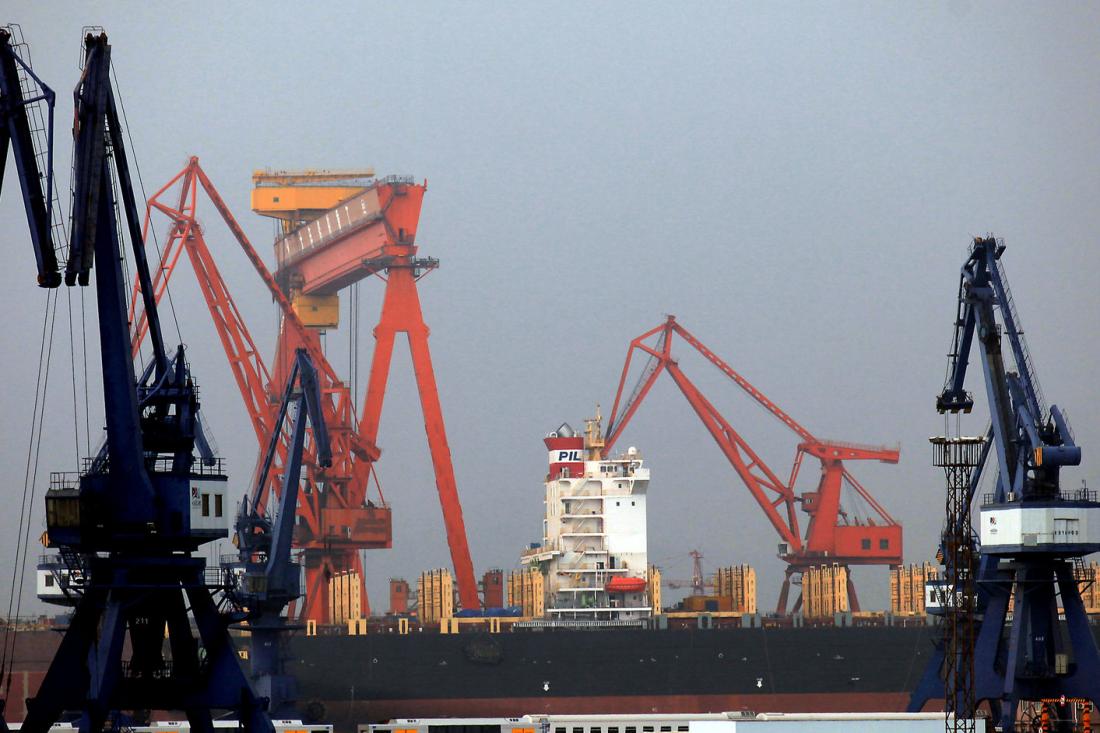Monday, September 11

EMPTY TOOLBOX
UN to mull North Korean oil embargo, but veto likely

Today, the UN Security Council is expected to vote on a draft resolution tabled by the US to slap additional sanctions on North Korea. The document proposes a ban on Pyongyang’s textile exports, prevents the hiring of North Korean labourers overseas and introduces an oil embargo.
North Korea imports all the crude oil it consumes—some 520,000 tons a year—most of which comes from China. An embargo would disrupt much of the country’s Soviet-era manufacturing plants and reduce transportation options for North Koreans.
But even if the plan isn’t vetoed by China and Russia today (which is probable), it’s highly unlikely that Pyongyang will give up its hard-won nuclear capabilities to resume oil imports. Rather, the regime will turn to other energy sources, particularly its large coal reserves, which can be converted into oil via the Fischer-Tropsch process.
A more productive avenue would be the resumption of talks between the North and key international stakeholders. Over the weekend, Angela Merkel pointed to Iran-style nuclear negotiations as a feasible option and one Germany was “prepared to play a very active part in”.
CHILLED CENTRISM
Norwegians head to the polls

Today, Norwegians will go to the polls for their country’s parliamentary elections. While the next prime minister will undoubtedly hail from either the centre-left Labour Party or the incumbent centre-right Conservative Party, the governing coalition will be decided by minor parties’ allegiances.
In particular, the populist Centre Party (SP), which is polling at highs of around 10%, could play kingmaker for either coalition. The outsider party opposes left and right wing politics, campaigning on the rejection of governmental centralisation and free trade. Highly Eurosceptic and Islamophobic, it opposes the open practice of Islam and Norway’s participation in both the European Economic Area and the Schengen Area.
Labour’s concerns about capitalism and free trade’s effects on the working class make it the more likely partner for the agrarian SP. Expect the SP to join with Labour to pursue issues that appeal to their pastoral constituents, such as preventing rural hospital closures and the consolidation of small municipalities.
Still, the outcome is too close to call; most polls suggest a victory for either coalition by one or two seats out of the parliament’s 169, making this the closest race in recent history.
INDICTED DEMOCRACY
Cambodia’s opposition leader to be stripped of immunity

Cambodia’s lawmakers will almost certainly strip opposition leader Kem Sokha of his parliamentary immunity today. The step comes despite a boycott by Mr Sokha’s political allies, who will rally outside the opposition figure’s jail cell.
Sokha was arrested last week on charges of treason, which he insists are politically motivated. As evidence, authorities have produced a 2013 video in which Sokha discusses winning an election with the help of Americans.
Having ruled the country for 32 years, Prime Minister Hun Sen has recently upped his crackdown on dissent ahead of an election next July, which is widely considered to be the largest test of his leadership in decades. 19 radio stations have been closed and the English-language Cambodia Daily was forced to shut down after being summarily presented with a $6 million tax bill.
While Western countries, like the US and Australia, have criticised the crackdown, China has offered public support to the prime minister—a relationship Beijing has cultivated over the years with billions of dollars in aid.
Mr Sokha faces up to 30 years in prison if convicted of treason. The indictment of Cambodia’s democracy could be much worse.
HAPPENING ELSEWHERE…
The Great Repeal vote, Catalonia celebrates, Netanyahu in Argentina

British lawmakers will vote on the Great Repeal Bill, which will provide the legal framework to transform EU-era laws to British legislation after Brexit. Despite moves by the opposition to block the bill, Theresa May is expected to receive enough support to pass this key piece of legislation.
The independence-minded Spanish region of Catalonia will celebrate its National Day. Catalonia had been planning to hold an independence referendum in October—a move that was blocked by the Spanish Constitutional Court late last week. Expect patriotic demonstrations in defiance of Madrid.
When he lands in Argentina today, Benjamin Netanyahu will become the first Israeli prime minister to visit Latin America. The PM will spend five days in the region- also visiting Colombia and Mexico- in a bid to upgrade ties with countries outside of North America and Europe and gain support at the UN over the Palestinian issue.

